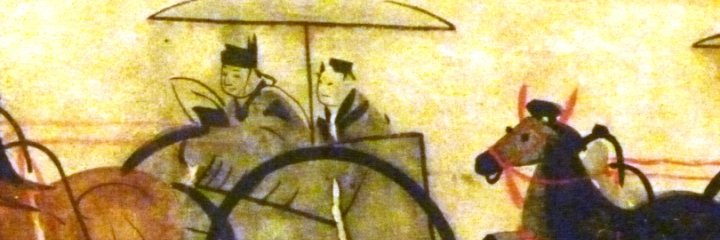
At the Mercy of Ants - Part 2
與馬逐走筋絕 Run with the horses and get trampled. 不能及也 It's impossible to get anywhere. 上車攝轡 Mount the chariot and take the reigns. 馬死衡下 The horses settle under the yoke. 伯樂相之 王良御之 明主求之 Bole trained them, Wangliang harnessed them, an enlightened master called for them. 無御相之勞而致千 里善乘人之賢也 He did none of the work of training or tackling, but he drove them a thousand miles, admired by every expert charioteer.
人君之道無為而有就也 有立而無好也 The way of the prince is to do nothing but to get it done, to decide but not to play favourites. 有為即議 有好即諛 As soon as he does something, he's criticized, and when he does favours, he's courted. 議即可奪 諛即可誘 If he can't take criticism, he can be bullied, and if he can't resist flattery, he can be seduced.
夫以建而制於人者 不能持國 In either case, when the power to appoint is at the mercy of others, it's impossible to maintain institutions. 故善建者不拔 言建之無形也 唯神化者物莫能勝 Since good foundations don't crumble, promises to preserve them are empty, but nothing beats changing with the times.
中欲不出謂之赖 They say he's reliable when he doesn't act impulsively. 外邪不入謂之閉 They say he's confident when he doesn't let it get to him. 中赖外閉何事不節 Why wouldn't they feel safe when he's self-possessed and tolerant? 外閉中赖何事不成 Why wouldn't they succeed when he's self-confident and patient?
故不用之 不為之 而有用之 而有為之 That's why he doesn't command them, doesn't force them, but something motivates them, something makes them. 不伐之言 不奪之事 He doesn't doubt their competence, doesn't do the work for them. 循名責實 使自有司 He respects rank and expects results, orders the government to run itself. 以不知為道 以禁苛為主 He leads the way in ignorance, he's the boss to prevent abuse.
Notes
I started looking at this passage because it contains part of an obscure term (數窮) that also appears in chapter 5 of the Daodejing. I also looked closely at a passage in Lu Shi Chun Qiu that contains the full phrase (數窮於其下), and it turned out to be another warning on the dangers of micro-managing. The passage goes into some detail on how meritocracies end up with snarky, exhausted leadership, and adds a pointed question that makes me think it's not a stretch to interpret the full phrase to mean something like venting frustration on subordinates or taking it out on subordinates.
As the beached whale is at the mercy of ants, the activist prince is at the mercy of 有司, office holders, bureaucrats, public servants, maybe the deep state, who knows? In any case, they eat him alive.
Doing a servant's work impairs a leader's 智, which I've chosen to interpret as judgement.
The organization the prince leads is the 百官, the hundred departments, in which the 有司 are employed, and the word appears again in the punchline at the end of the chapter. Since the second half of the chapter compares the enlightened leader to a charioteer, 百官 is his team.
The person in question, what I've interpreted here as prince, is 人君, a leader of men. While the word doesn't necessarily imply gender, and this passage applies equally well to any hierarchical organization of superior and subordinate, master and servant, boss and employee, I took the liberty of being specific about gender and rank to give the passage context in a feudal past.